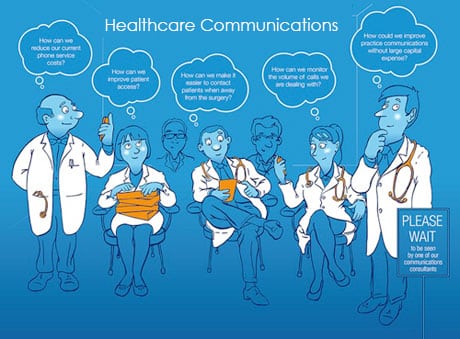 As some of you already know I am a huge fan and follower of a blog called “Headspace Perspective” – www.headspace-perspective.com – written by Leigh Kendall who is Hugo’s Mummy. Like me, she is an empty armed mother and Hugo died a few weeks after he was born. Leigh herself nearly died when he was born prematurely as she was suffering from the rare HELLP Syndrome, and also pre-eclampsia.
As some of you already know I am a huge fan and follower of a blog called “Headspace Perspective” – www.headspace-perspective.com – written by Leigh Kendall who is Hugo’s Mummy. Like me, she is an empty armed mother and Hugo died a few weeks after he was born. Leigh herself nearly died when he was born prematurely as she was suffering from the rare HELLP Syndrome, and also pre-eclampsia.
Today she posted this blog titled “Language Matters: Health Communication And Baby Loss“, which focuses on the need and importance of good communication to parents when bad news is to be delivered. I suffered poor communication from healthcare professionals when I was pregnant with Frankie from the day he was diagnosed with his severe cleft lip and palate, and I wrote some examples of these as a comment on her blog. I thought I would share them as a blog post on here, because some of them are awful, particularly how we were told that Frankie had a severe cleft lip and palate. Language matters so much in health care and I’m very grateful to Leigh for highlighting this very important area.
So, here are the times that my husband and I received poor communication from healthcare professionals:
I was asked to have a scan in addition to my 20 week one as apparently the female sonographer couldn’t get a good look at Frankie’s hands and face, so when I was 23 weeks pregnant I returned to the Worcestershire Royal Hospital for this extra scan. This time it was a male sonographer, and naturally my husband and I were really excited to see Frankie on the screen again. Everything started off fine, we were beaming away when we saw him on the screen and then the sonographer said out of the blue and very matter of factly, “I can see an abnormality”. We both froze, then the sonographer said, “Oh there it is, I see it. It’s a cleft. And it is a very severe cleft too.” He then went on to say, “Do you know what a cleft is?” but at this point we were dumbstruck and he continued, “It is like the pictures you see of children in the papers in third world countries who’s lips are deformed and their teeth grow in the wrong places.” Of course I had seen these pictures and I was hysterical, I knew what a cleft was but I didn’t know anything about it. I googled it when I got home, and I wish I hadn’t, although I did find the Cleft Lip And Palate Association who were brilliant.
The following week at Birmingham Women’s Hospital after a scan to confirm the diagnosis of cleft lip and palate the female consultant we saw very matter of factly said, “I can arrange a termination for you as he has as cleft lip and palate” and went on to explain the most graphic detail the procedure for foeticide (as that’s what it would have been at that stage of my pregnancy), and I was absolutely gob-smacked to find out that you can have a termination at any stage of pregnancy for a cleft lip and palate! Of course, there was NO WAY ON EARTH that was going to happen, I was devastated that anyone would even consider that just because their baby wasn’t “perfect” by today’s standards.
When I found out that Frankie would be born sleeping I have to say the communication there was brilliant. I was also well looked after during my induction and his birth, with everything communicated to us in an easy to understand way. The only thing I would say is the timing of us being given a memory box – by its name and definition it is a box to make memories, but we were given it just as we were leaving the hospital the day after Frankie was born, so it was a bit beside the point by then – we had already made all the memories we could.
 The day after I left hospital I was visited by my community midwife who clearly had no clue and no idea how to handle the situation. She was ill at ease and very awkward with me, and I had my brown post natal notes in my hand. She literally grabbed them from me saying, “I’ll take those”, stuffed them in her briefcase and left. I would have loved to have had a copy of them, but it is too late now, and I was too upset and traumatised to speak back.
The day after I left hospital I was visited by my community midwife who clearly had no clue and no idea how to handle the situation. She was ill at ease and very awkward with me, and I had my brown post natal notes in my hand. She literally grabbed them from me saying, “I’ll take those”, stuffed them in her briefcase and left. I would have loved to have had a copy of them, but it is too late now, and I was too upset and traumatised to speak back.
Then when the test results from Frankie came in and we were called urgently to see a geneticist because they revealed that Frankie had Chromosome 15 Duplication Syndrome we were bamboozled with science and long, overly complicated words that we didn’t understand. We were also made to feel like we were at school again and treated as if we knew nothing and wouldn’t understand the significance of Frankie’s diagnosis. I did genetics as part of my human biology GCSE and I understood what it would have meant for him had he lived – he would have been incompatible with life and wouldn’t have lived very long.
I applaud the work that Leigh is doing to promote better communication, and I have been thinking about running a campaign for this in my area since Frankie was born sleeping. Her blog post will hopefully give me the kick start I need to get it off the ground.
Leigh also has a website called “Bright In Mind And Spirit“, dedicated to helping healthcare communication.

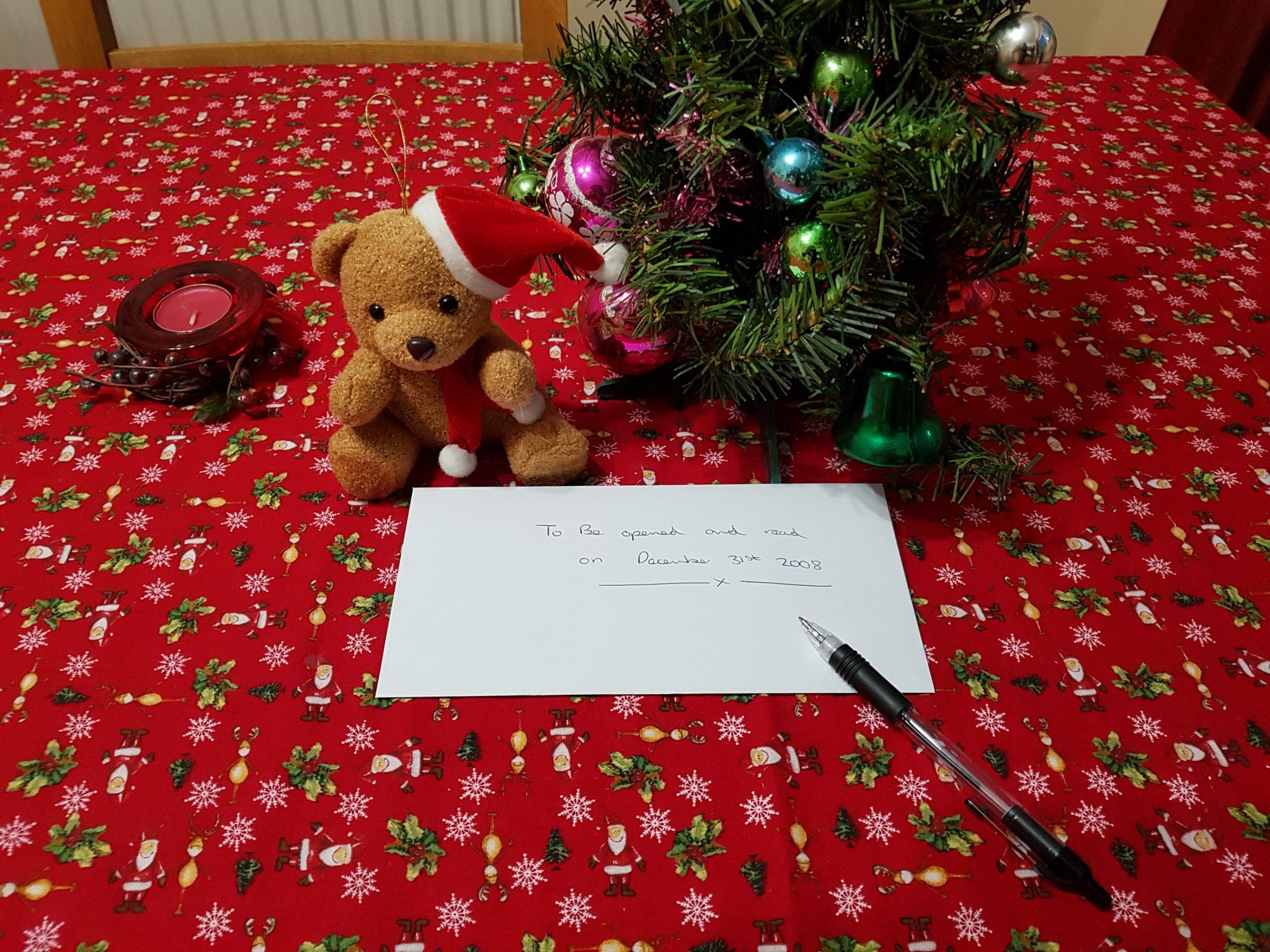
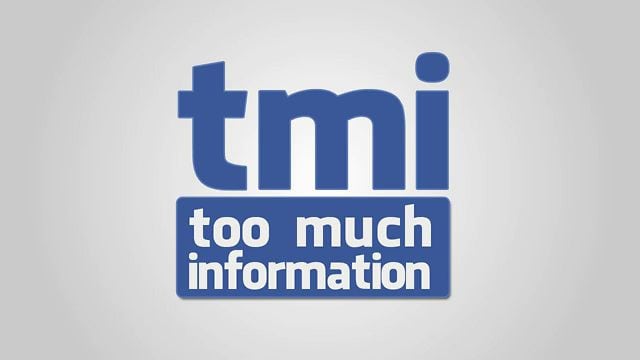
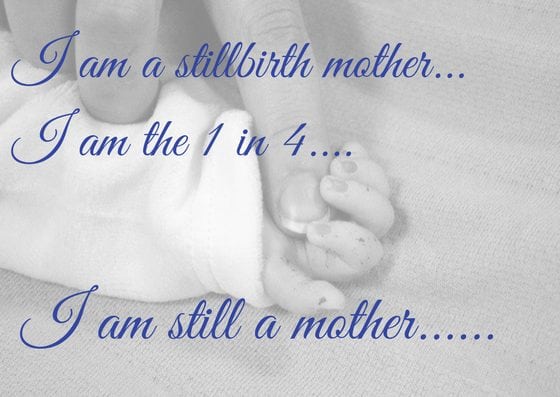

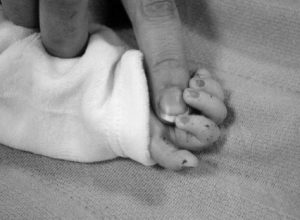




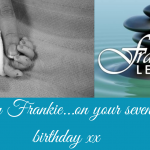



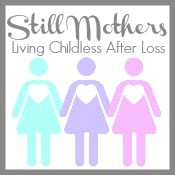
I would like to think that improvements have been made in recent years … but clearly this is not always the case.
I vividly remember the scans when I suffered miscarriages, and how we were spoken to by very matter-of-fact radiographers, and the after-care (or lack of it!) on the Ward when I had to have a D&C.
I also remember the Saturday afternoon visit from a Community Midwife when I was 17 weeks pregnant (with my now daughter) telling me that my risk of my baby having Downs Syndrome from the results of the AFP blood test taking earlier that week had come back as 1:24 and that she had already booked me in for an Amniocentesis test for 8.30am on the Monday morning! Then as quickly as she turned up on my front doorstep, the Community Midwife left us totally devastated, with nobody to turn to for advice and not knowing which way to turn (this was 15 years ago – so way before the days of every home having the Internet!)
I was very much rail-roaded into that Amniocentesis test, and with an almost 5 week wait ahead of us for the results, I shut myself away in my bedroom, and didn’t speak to a soul except for my husband during that time. Thankfully, and miraculously, my baby girl was absolutely fine and will celebrate her 15th birthday this coming August … but the stress and grief we suffered from as a couple, at that time, has never left us.
The problem, very much, was that we were much younger people than we are now, and ante natal care was all completely new to us, and we didn’t really have a lot of life experience dealing with hospitals generally and the staff … had we known what we know now, then we would have responded very differently to how we did at the time in our vulnerability.
Promoting better communication at these key moments, when bad news needs to be delivered is absolutely key in helping expectant parents dealing with the issues at the time, and with the after-effects in years to come.